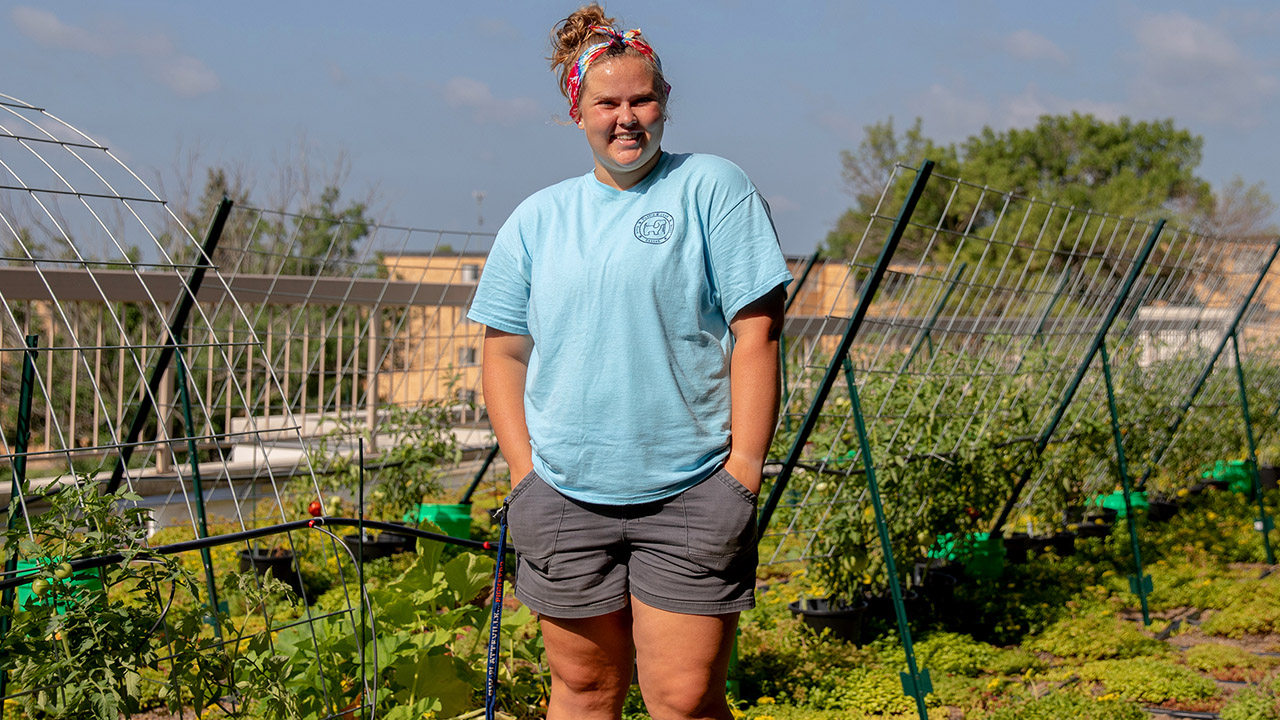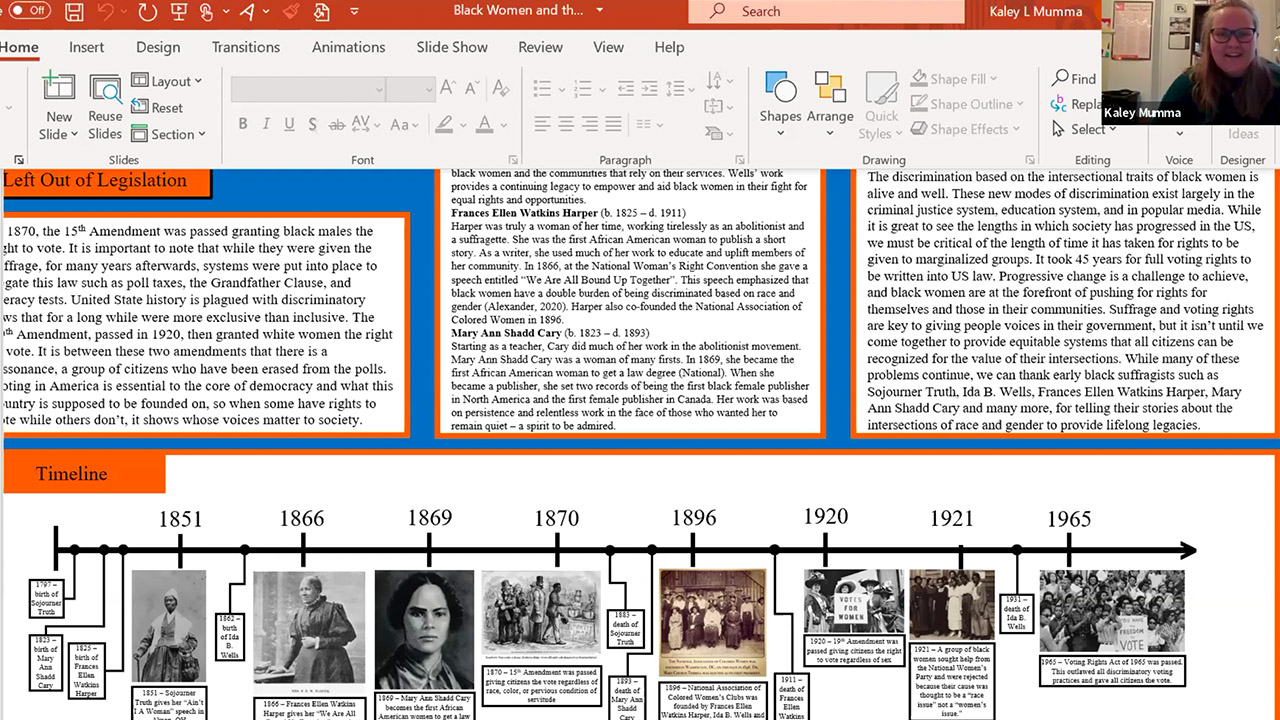

Kaley Mumma, a University of Wisconsin-Platteville senior from Byron, Illinois, was selected to present at the 2020 Red River Women’s Studies Conference, hosted by North Dakota State University last week. The conference’s theme, “Imperfect History,” marked the 100th anniversary of the 19th amendment. Mumma’s presentation, “Black Women and the Suffrage Movement,” aimed to re-examine the women’s suffrage movement in the context of women who are marginalized due to the color of their skin.
“I really wanted to focus on black women suffrage,” explained Mumma. “In the 1920s, the 19th amendment gave women the right to vote, but there was still a 45-year gap where women of color could not vote. I want to bring awareness to the fact that disenfranchisement is a big part of U.S. history. Even though now we have laws that give everyone the right to vote, they really haven’t been around as long as we think they have. I just wanted to shed some light on information that was already there, but that we don’t always get taught in history class.”
Mumma learned about the opportunity for the presentation while enrolled in the Black Women and Feminism in the U.S. course, taught by Dr. Dong Isbister, associate professor of women and gender studies.
“Kaley’s project was developed from a course research assignment,” said Isbister. “When learning about the conference, Kaley expressed her interest in conducting more research in black women and the suffrage movement and presenting a poster to a larger audience. Her research and enthusiasm made a successful presentation possible. I am very proud of her. I also look forward to working with her on more research projects.”
Mumma is pursuing a minor in women and gender studies. Pairing this with her double majors in agriculture education and environmental horticulture, she hopes to eventually work towards making the agriculture field more diverse and inclusive.
“There are a couple of reasons why I like having the women and gender studies minor,” said Mumma. “I will definitely be an agriculture education teacher right out of college, and I think it provides another element of support to my future students and makes me better able to understand barriers. I feel like I can be a better ally and be more assistive to those students who may be marginalized. But at some point, I do want to have a Ph.D. in agriculture. I really like building connections and relationships locally, and I like the community side of agriculture. But I do think that it is still male-dominated, and dominated primarily by people who are white. I want to eventually find ways of looking at diversity in agriculture and make it more inclusive – whether it’s making education more accessible or changing workplace culture, I want to find out how I can help more people get into agriculture.”
Mumma will have the opportunity to begin pursuing this topic next semester, when she enrolls in an independent research course with Isbister, through which she intends to study issues of women in agriculture.